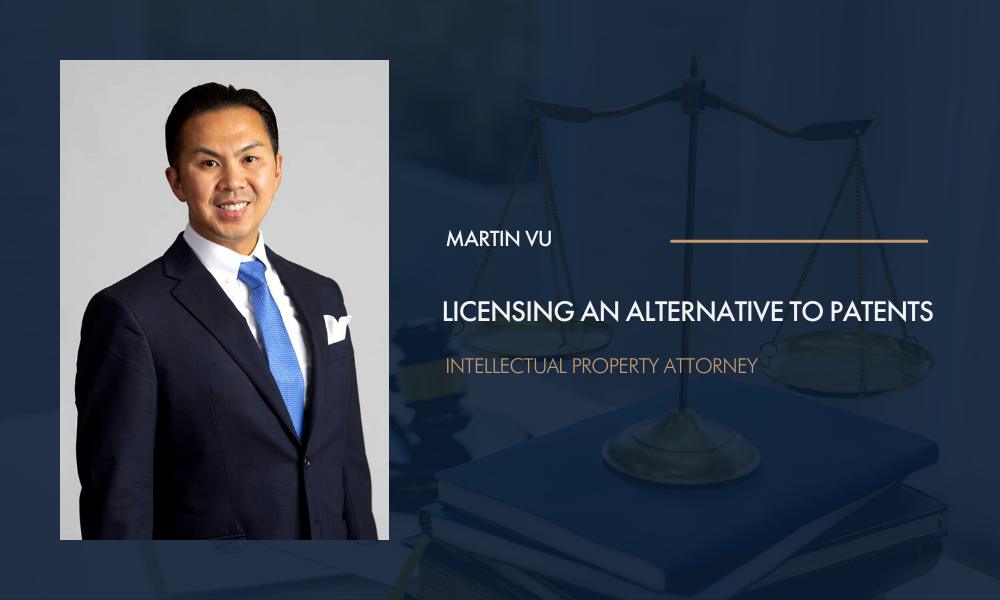Being in the intellectual property (IP) space, I aim to protect my clients’ IP rights including patents, trademarks, trade secrets, and copyrights. The most rewarding part of my job as an intellectual property attorney is to work with bright inventors who have passion concerning their product concepts.
The Patent Application Process
For inventors who want a patent, I get to listen to their journey and expand on their story in the form of a patent application. The patent application typically consists of illustrative drawings, specifications that inform someone how to make and use the patent, and claims that articulate what the inventor is trying to protect. The exciting moment I get to share with clients is the moment that their patent application is filed with the United States Patent & Trademark Office (USPTO) because the client can begin marketing and selling their product while they wait for the USPTO examiner to determine if their patent application will be granted patent protection rights.
The Limitations of Patent Protection
However, after the patent application is successfully filed, some clients ask, “does having a patent pending status or actual patent granted prevent someone from stealing my patent concept?” The short answer I give them is “No.” I remind them that during our initial consultation that getting a patent is a great way to get a competitive advantage in the marketplace often resulting in a monopoly for a period of time. I also remind them that getting a patent does not prevent others from stealing the patent concept right from underneath their noses without their permission. When such unfortunate situations occur, one likely outcome is civil litigation.
Unfortunately, most inventors and small businesses do not have $1 million dollars lying around to fight a patent infringement civil case because most inventors and small businesses are just starting up. Therefore, the question that comes up after having this level set discussion with my clients is “what are my options?”
Alternatives to Patents
After reading Mr. Stephen Key’s blog, he recommended one effective solution in working up a licensing agreement instead of getting a patent. Although this option is not as financially ideal for innovators and startups, licensing agreements can be an effective strategic vehicle that allows for some financial protections in the form of a contract.
Using the licensing agreement approach could be a win-win solution that successfully achieves the goals of both the inventors/small innovative businesses and supply chain entities including distributors and large retailers. For the inventors and small innovative businesses, the licensing agreement avoids costly patent infringement civil litigation and builds strategic relationships with supply chain entities. For supply chain entities, licensing agreement allows for immediate innovative revenue sources resulting in market share and profitability.
If you or someone you know who is interested in obtaining a patent or licensing agreement as a strategic IP protection vehicle, please contact Fargo Patent & Business Law for a free consultation. Our attorneys are experienced in such matters and can help.

